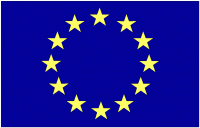CITIZENS FOR SCIENCE IN PESTICIDE REGULATION
A European Coalition
Brussels 23-11-2018
Dear Permanent Representation to the EU,
We, the members of the European coalition “Citizens for Science in Pesticide Regulation”[1] -consisting of more than 120 environmental, health, trade union, consumer protection, scientific and medical organisations and institutions, as well as concerned individuals- call on you to take action to urgently reform the current procedure of pesticide authorization and protect citizens and the environment against all potential harm caused by the use of pesticides in the production of our food and management of public (or private) areas.
The purpose of the European pesticide regulation (EC) 1107/2009 is to ensure a “high level of protection of human and animal health, and the environment” and is underpinned by the precautionary principle. However, the law is not implemented correctly in practice.
Major conflicts of interest exist in the pesticides regulatory system. The Monsanto Papers - internal Monsanto documents recently disclosed in cancer litigation in the USA - show how industry can actively subvert science[2]. Academic scientific literature is repeatedly dismissed during risk assessment[3] and recent independent scientific reviews demonstrate that industry fails to report all the adverse effects found in the industry-sponsored toxicity studies giving the false impression that a specific pesticide is safe[4],[5]. It is clear that industry must be kept at arm’s length from safety testing, risk assessment and risk management.
Studies keep revealing an abnormally high rate of diseases in farming families and residents in agricultural areas[6] as well as high levels of pesticide residues detected in food[7]. Further, the bad state of the environment[8],[9] and the decline of biodiversity and wildlife in proximity to agricultural areas are more and more documented[10],[11]. Evidently, the current pesticide risk assessment and management system is failing us and pesticides that cause harm to humans, animals and the environment are erroneously authorized for use. A reform of the current system is urgent and a better implementation of the precautionary principle is necessary.
Ahead of the urgent need for major improvement of the system, we invite you to read and take follow up action on our manifesto “Rigorous science, safe food, and a healthy environment” and demand the implementation of the 15 practical solutions we provide to the major failing of the current risk assessment and risk management system.
Our request comes at a crucial moment: the European Commission has presented a proposal to increase transparency in the European food law, the European Parliament has set a special Committee (PEST) to investigate the European Union’s authorisation procedure for pesticides and will present its recommendations this year. Important decisions will be made on 27th of November and 6th of December and we ask for your reaction to strengthen the level of protections from harm caused by pesticides. Furthermore, the European Commission is reviewing pesticide legislations as part of its REFIT programme. This is a major window of opportunity to strongly improve the system both at EU- and national-levels and we therefore ask for your support.
Your actions now will help to strengthen the implementation of the EU rules that aim to ensure a high level of protection from pesticides in Europe.
From beforehand, thank you for your kind attention.
Kind regards,
The steering group of Citizens for Science in Pesticide Regulation, on the behalf of the coalition
Angeliki Lysimachou - Pesticide Action Network (PAN) Europe; Sophie Perroud - Health and Environment Alliance (HEAL); Claire Robinson – GMWatch; Apolline Roger– ClientEarth; Nina Holland - Corporate Europe Observatory (CEO); François Veillerette - Generations Futures; Arnaud Apoteker - Justice Pesticide; Helmut Burtscher - Global 2000; Peter Clausing - Pesticide Action Network (PAN) Germany; Nick Mole – Pesticide Action Network (PAN) UK
[1] https://citizens4pesticidereform.eu/
[2] Baum, Hedlund, Aristei & Goldman (Attorneys). Monsanto Papers- Secret documents released in 2017. https://bit.ly/2vpvF5R
[3] PAN Europe (2014). “Missed and Dismissed” https://bit.ly/2QHBtyS
[4] Portier C (2017). Open letter to European Commissioner: Review of the Carcinogenicity of Glyphosate by EChA, EFSA and BfR. https://on.nrdc.org/2RRMQ7w
[5] Mie A, Rudén C, Grandjean P (2018). Safety of Safety Evaluation of Pesticides: developmental neurotoxicity of chlorpyrifos and chlorpyrifos-methyl. Environ Health 17:77 https://doi.org/10.1186/s12940-018-0421-y
[6] Bellanger et al (2015). Neurobehavioral Deficits, Diseases, and Associated Costs of Exposure to Endocrine-Disrupting Chemicals in the European Union. https://academic.oup.com/jcem/article/100/4/1256/2815066
[7] PAN Europe (2017). How many pesticides did you eat today? Plenty, according to European Food Safety Authority. April 13. https://www.pan-europe.info/press-releases/2017/04/how-many-pesticides-d...
[8] Stehle S, Schulz R (2015). Pesticide authorization in the EU — environment unprotected? Environmental Science and Pollution Research 22(24):19632–19647. https://link.springer.com/article/10.1007%2Fs11356-015-5148-5
[9] Stehle S (2015). EU – European Union or Environment Unprotected? The EcoTox Blog. Sept 21. http://www.master-ecotoxicology.de/ecotox-blog/eu-european-union-or-envi...
[10] Hallmann CA et al (2017). More than 75 percent decline over 27 years in total flying insect biomass in protected areas. PLOS ONE 12(10): e0185809.
[11] Woodcock BA et al (2015). Impacts of neonicotinoid use on long-term population changes in wild bees in England. Nature Communications 7:12459. DOI:10.1038/ncomms12459.
